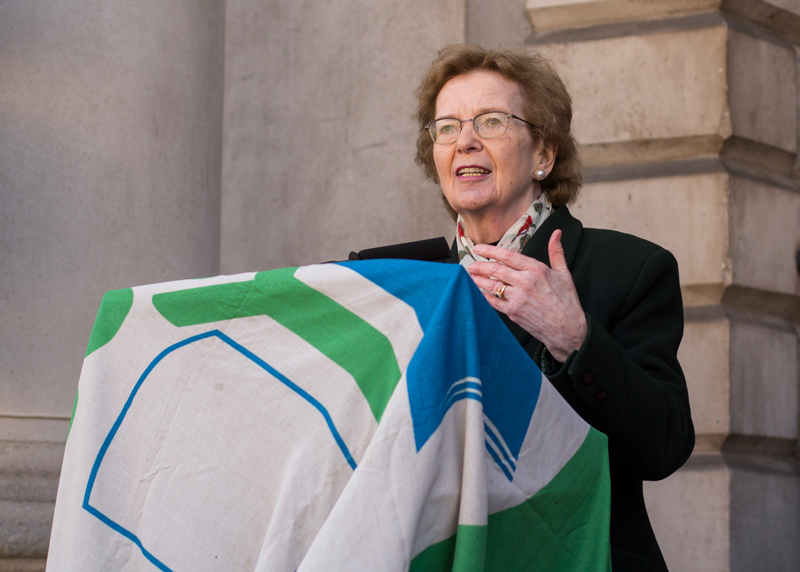
Green Week came to a strong conclusion on Friday with a timely panel discussion on the subject of climate justice, organised by Trinity’s Free Legal Advice Centre (FLAC) and Trinity College Dublin Students’ Union (TCDSU). Chaired by former President of Ireland and long-time environmental activist Mary Robinson, the talk featured insights from environmental lawyer Dr. Andrew Jackson and Professor Yvonne Scannell, author of several textbooks on Environmental and Planning Law.
Robinson recently attended the Doomsday Clock Event on 23rd January in Washington, which announced to the world the painful truth that we are 100 seconds from midnight, the closest to global catastrophe we have ever been since its inception. Robinson is particularly troubled by the “disproportionate” effect climate change has had on impoverished countries in south-east Asia and Africa, forcing them to plan and implement advanced and far-reaching strategies, although they do not have the means or the infrastructure. In a world in which climate change denial and apathy is still widespread, Robinson’s speech held a powerful takeaway: “Get angry and get active.”
There is cause for optimism, however. At the launch of the 2030 Agenda for Sustainable Development, Robinson watched representatives of 193 countries gather in solidarity to create an agreement that would ensure the prioritisation of the earth, the people, the helpless and the oppressed. In an emotive plea for co-operation from her audience, Robinson sets out her vision for combatting what she calls “a manmade agenda requiring a feminist solution”: to make the climate crisis “personal”, she says, we must “imagine the world we need to hurry towards”. Her speech concluded with Nelson Mandela’s timeless quote: “It always seems impossible until it is done.”
Dr Andrew Jackson followed, sharing his own personal response to the climate breakdown and illuminating the “unique” contribution of lawyers. He discussed the use of systematic litigation in “tackling the entire system”. Jackson was a vital figure launching the appeal against the High Court’s decision in the landmark Climate Case Ireland, which drew much attention from the public. The hearing took place in January 2019. He recalled the 18,000 people who signed up for the case to be in their name. Jackson concluded his speech by asking a powerful question: “Is it okay for the government to speak of the need to reduce emissions, but for the state to allow the emissions to rise?” Is this not an infringement of human rights?”
Yvonne Scannell was the final speaker and concluded the talk with the discussion of climate change on a ground level. Scannell reminds us that Ireland was ranked 154th in the world for dealing with climate change, a worrying result that is cause for great concern. She discussed how we must deal with issues of electricity, heat, and agriculture. Scannell informed us on Ireland’s reluctance to embrace wind turbines, with complaints focusing on their proximity to homes as well as purchase of land. Climate action in Ireland is coming at a high price for ordinary citizens, with a carbon tax system which is considered too punishing, and a lack of infrastructural development in transport. Ireland’s “opaque” environmental laws further contribute to this overall climate inertia.
Although serious in tone, yesterday’s panel discussion brought this year’s Green Week to an end on an empowering note. The mammoth uphill task presented by the climate crisis can be solved, but it will require co-ordinated systematic and legislative change.






